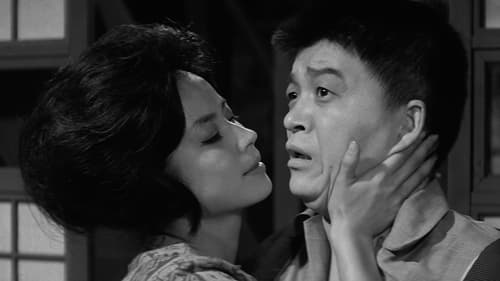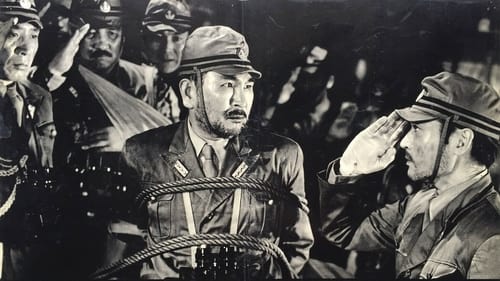
1958년 성매매 금지법이 시행되자 다수의 성매매 여성들이 보호 및 재활 시설로 옮겨진다. 모범적인 모습을 보인 구니코는 부인회의 후원을 받아 가게를 운영하는 부부의 집에 머물면서 일을 돕기 시작한다. 그러나 그녀의 과거가 드러나자 사회적 편견과 차별에 끊임없이 시달리게 된다.

Set in the postwar turmoil, Akasaka no shimai paints a vivit portrait of the life of three sisters who struggle to live in Tokyo.

Chief Defense Counsel Uzawa
In 1941, overpopulated Japan faces an economic boycott and its armed forces push further to the south. And despite negotiations between Japan and the U. S. A. war is declared with the attack on Pearl Harbour. Victories follow for Japan on land and sea and her forces push forward to the borders of India. But gradually the tide turns in favour of the Allies and after the atom bombings of Hiroshima and Nagasaki, Japan is compelled to accept the Potsdam Declaration and by the order of the Emperor agrees to unconditional surrender. Under the supervision of the occupation forces the International Military Tribunal opens in Tokyo to try the Japanese war leaders. Established in the cause of justice, and to prevent future aggressive wars the trials drag on for two and a half years. And on December 23, 1948, General Tojo and six other war leaders mount the thirteen steps to the gallows at Tokyo's Sugamo prison.

Adaptation of Edogawa Ranpo's novel.

A Japanese army engineer (Hasegawa) on the mainland must put his personal feelings for a beautiful Chinese woman (Ri) aside if he is to succeed at building a highway through the "bandit"- (aka anti-Japanese militia-) infested hinterlands.


